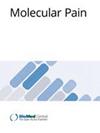原发性痛经中奖赏系统的神经适应。
IF 2.8
3区 医学
Q2 NEUROSCIENCES
引用次数: 0
摘要
引言 大脑奖赏系统(RS)对疼痛和减轻疼痛的反应各不相同。本研究探讨了原发性痛经(PDM)患者在疼痛和无痛期间大脑奖赏系统活动与行为之间的相关性,以阐明他们在整个月经周期中的适应性反应和适应不良反应。方法 92名原发性痛经患者和90名对照组患者在月经期和围排卵期接受了静息态功能磁共振成像(rsfMRI)扫描。采用区域均匀性(ReHo)和低频波动幅度(ALFF)分析来评估 RS 反应。使用麦吉尔疼痛问卷和疼痛灾难化量表进行心理评估。结果 ReHo 分析显示,与月经期相比,PDM 组在围排卵期左侧丘脑和右侧杏仁核的数值更高。ALFF分析表明,与对照组相比,PDM组的丘脑中的ALFF值较低,与任何阶段无关。丘脑、杏仁核和伏隔核中的ReHo和ALFF值与月经期疼痛量表呈正相关,而腹侧被盖区的ALFF值与疼痛强度呈反相关。重度 PDM 患者(疼痛强度≥ 7)在疼痛和无痛阶段之间表现出明显的杏仁核 ALFF 模式。与对照组相比,PDM 患者在月经期间左侧脑岛的 ReHo 值也较低,但与疼痛没有直接关系。讨论 我们的研究强调了RS在痛经管理中的关键作用,PDM患者在经期不适和非疼痛期之间的反应各不相同。在月经期间,RS 会触发避痛机制和认知应对策略,而在围排卵期则会过渡到处理奖励。这表明 RS 在适应 PDM 患者反复出现的疼痛方面具有灵活性。本文章由计算机程序翻译,如有差异,请以英文原文为准。
Neural Adaptation of the Reward System in Primary Dysmenorrhea.
Introduction The brain's reward system (RS) reacts differently to pain and its alleviation. This study examined the correlation between RS activity and behavior during both painful and pain-free periods in individuals with primary dysmenorrhea (PDM) to elucidate their adaptive and maladaptive responses throughout the menstrual cycle. Methods Ninety-two individuals with PDM and 90 control participants underwent resting-state functional magnetic resonance imaging (rsfMRI) scans during their menstrual and peri-ovulatory phases. Regional homogeneity (ReHo) and amplitude of low-frequency fluctuation (ALFF) analyses were used to evaluate RS responses. Psychological evaluations were conducted using the McGill Pain Questionnaire and the Pain Catastrophizing Scale. Results ReHo analysis showed higher values in the left putamen and right amygdala of the PDM group during the peri-ovulatory phase compared to the menstrual phase. ALFF analysis revealed lower values in the putamen of the PDM group compared to controls, regardless of phase. ReHo and ALFF values in the putamen, amygdala, and nucleus accumbens were positively correlated with pain scales during menstruation, while ALFF values in the ventral tegmental area inversely correlated with pain intensity. Those with severe PDM (pain intensity ≥ 7) displayed distinct amygdala ALFF patterns between pain and pain-free phases. PDM participants also had lower ReHo values in the left insula during menstruation, with no direct correlation to pain compared to controls. Discussion Our study highlights the pivotal role of the RS in dysmenorrhea management, exhibiting varied responses between menstrual discomfort and non-painful periods among individuals with PDM. During menstruation, the RS triggers mechanisms for pain avoidance and cognitive coping strategies, while it transitions to processing rewards during the peri-ovulatory phase. This demonstrates the flexibility of the RS in adapting to the recurring pain experienced by those with PDM.
求助全文
通过发布文献求助,成功后即可免费获取论文全文。
去求助
来源期刊

Molecular Pain
医学-神经科学
CiteScore
5.60
自引率
3.00%
发文量
56
审稿时长
6-12 weeks
期刊介绍:
Molecular Pain is a peer-reviewed, open access journal that considers manuscripts in pain research at the cellular, subcellular and molecular levels. Molecular Pain provides a forum for molecular pain scientists to communicate their research findings in a targeted manner to others in this important and growing field.
 求助内容:
求助内容: 应助结果提醒方式:
应助结果提醒方式:


